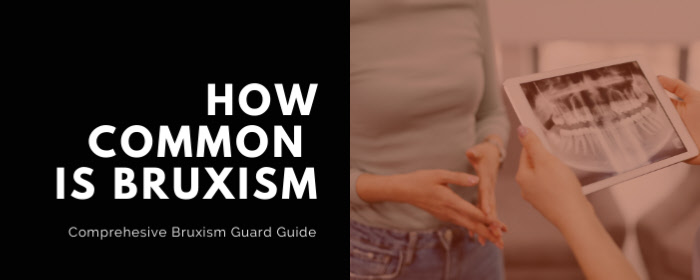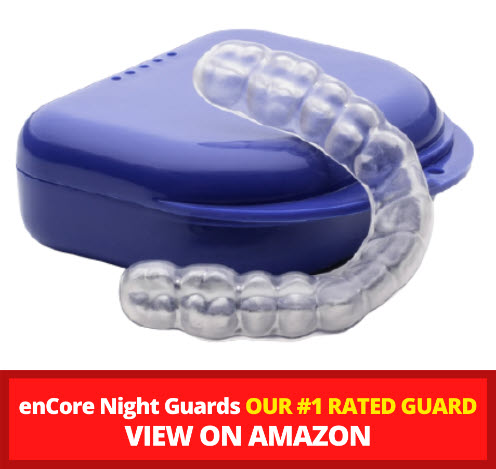
Although bruxism or teeth grinding appears to be a common problem, you may be wondering, how many people actually grind their teeth? The answer is that about half of the population does this from time to time. Knowing how common is bruxism may be surprising for some. However, only about 5% of the population are actually regularly grinding their teeth. This includes people who do this when they’re awake and those that only grind their teeth when they’re sleeping.
Common Bruxism
Surprisingly to some, bruxism is more common in children, teenagers, and young adults. It’s less commonly seen in middle-aged and older adults. The exact number of each group are not well-known since many people are not aware that they even grind their teeth. Also, this number may change throughout a person’s life as they recognize and work to prevent bruxism.
Studies have found that anywhere from 6-50% of children are experiencing nighttime teeth grinding at any given time. This can affect children from the minute their teeth come in, so even infants and toddlers may be experiencing this. In teenagers, the incidence of teeth grinding is much more common at nighttime and about 15%. This number goes down when it comes to middle-aged and older adults. It’s estimated that only 8% of middle-aged adults experience bruxism and 3% of older adults do this habit.
Why Does This Happen?
Since this habit appears to be more prevalent in younger people, it’s a common question about why this actually occurs. There are a few primary reasons why it may be happening.
Some are easily prevented with simple lifestyle changes while others may be more complicated. However, regardless of the treatment, the common causes of bruxism include the following:
1. Stress and Anxiety
If you’re feeling nervous, anxious, or stressed, don’t be surprised if you find yourself doing this more often. People often have a tendency to clench and grind their teeth as a coping mechanism. This may be more common in individuals who are experiencing higher levels of stress than normal. Teenagers who are experiencing anxiety often report that they have difficulty in this area.
2. Crooked Teeth
When the teeth in your mouth don’t line up correctly, then you may be more likely to grind your teeth. If the mouth doesn’t close easily or isn’t naturally closed when resting, then it may cause a person to subconsciously grind their teeth in an attempt to be more comfortable. Having braces or teeth straightened may help to resolve this common symptom (1).
3. Sleep Apnea
Although the reasons are not always well-understood, snoring, sleep apnea, and sleep talking may be among the causes of teeth grinding. If you experience these symptoms while sleeping, you may be more prone to teeth grinding.
4. Alcohol and Tobacco Use
If you’re looking for a reason to give up smoking or limit your alcohol intake, then this may be the one you’re looking for! Drinking and smoking can double the frequency of bruxism. This is why it may be a good idea to give up these habits. Even if you drink, you may want to limit drinking too close to your bedtime or try to limit how much alcohol you drink at any given time.
5. Coffee Consumption
If you’re a frequent coffee drinker, it may be the caffeine or other effects of this beverage that cause you to grind your teeth. This is also an area where you may want to cut back if you’re drinking too much coffee throughout the day. People who drink more than eight cups of coffee a day are about 50% more likely to grind their teeth. However, by cutting back, you may notice that you’re much less likely to experience this problem.
6. Personality Traits
Although personality is a harder area to describe, some people have found that their state of mind may actually affect their tendency to grind and clench their teeth. People who are competitive often find that they grind their teeth more often. This may be due to the added stress of competition or related factors.
7. Family Connections
Genetics plays a large role in whether or not you grind your teeth. Take note if you have any family members who are also prone to teeth grinding. If they do it, you may be at higher risk as well. For example, for children who are found to have bruxism, it’s much more likely that their parents also have this habit. Determine if your family has any members who grind their teeth if you suspect this in yourself.
8. Other Disorders
Although these are the primary reasons why people display bruxism, certain diseases and conditions may also increase your risk of this happening. Other than sleep disorders, there are other conditions that increase the rates in adults. These can include Parkinson’s disease, ADHD, epilepsy, and dementia. If you or anyone you know has any of these conditions, it may be a good idea to monitor for bruxism as well.
Resolving Bruxism
If you or anyone you know is experiencing teeth grinding, keep in mind that there is not one solution for this problem. However, if left untreated, your teeth may be worn, damaged, and cracked. This is a serious condition that should not be left without trying to resolve it effectively.
One of the best ways to get started finding a solution is to visit your dentist. When experiencing the common symptoms of bruxism such as tooth pain, jaw pain, and any damage to the teeth, your dentist can complete an evaluation. A dentist will look for any problems with your jaw muscles and also any dental abnormalities that may indicate you grind your teeth. If noticing any problems in this area, he or she can review your dental condition and take note of any factors that may be contributing to bruxism. After determining the underlying cause or causes, it will be much easier to develop a treatment plan and keep your teeth in good shape over time.


